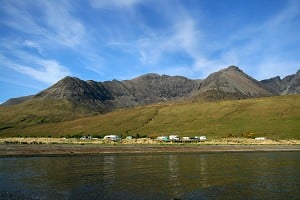In reply to Allan Young:
I'm on the Ogwen team and a MREW casualty care certificate holder, but not an HCP in any way. I'm just speaking personally here and not on behalf of MR.
Certainly any medi alert bracelets/pendents would be picked up on during a primary survey. If multiple team members were available at an incident and some weren't hands on dealing with the casualty, then someone would look through a bag for ID and any obvious drugs etc to help give us a clue as to what might have happened eg. the obvious diagnostic tools a diabetic might carry.
As to the post suggesting that an alert bracelet might be missed - I think it's unlikely if a well trained first aider is doing their job properly.
If we were called to a single unresponsive casualty (perhaps found by another walker etc) then we would be looking at getting them to a hospital as soon as possible.
If you've got a medical condition which means you might end up in this scenario then something to alert us to this would be beneficial. Other than that, leave a detailed route plan and late back protocol with a friend/relative.
